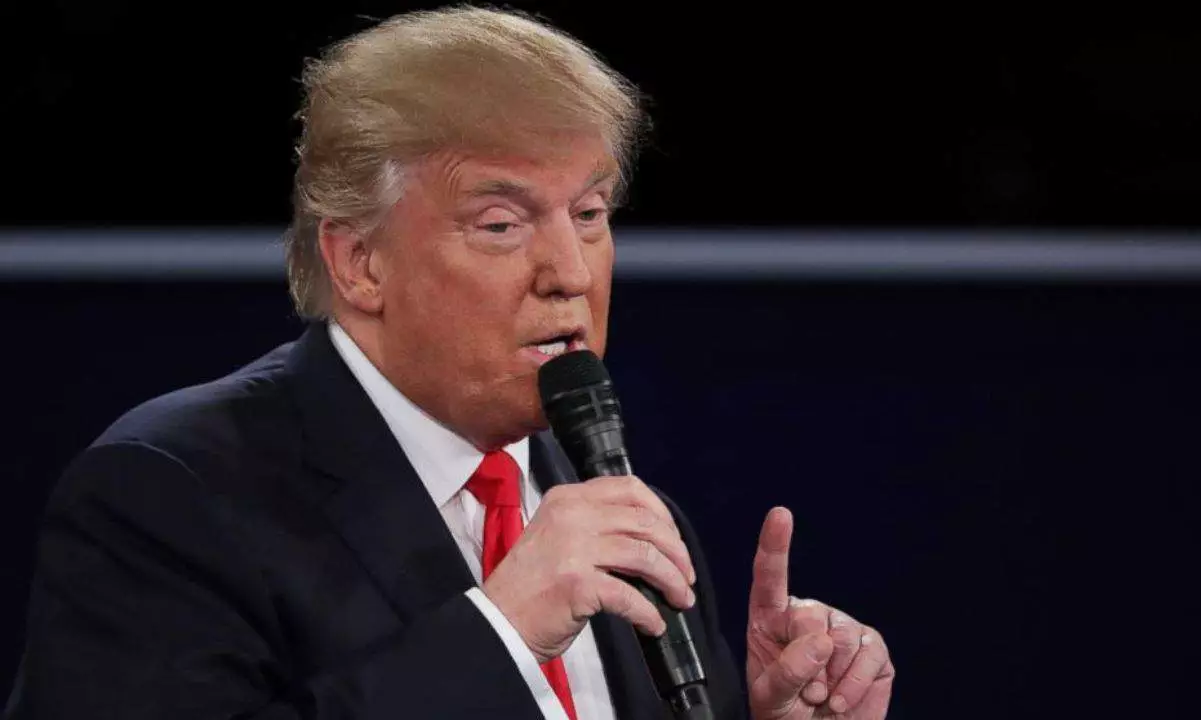The trajectory of Donald Trump’s relationship with cryptocurrencies is a compelling narrative underscoring the dynamic nature of financial ideologies in the digital age. Once a vocal opposer of Bitcoin and similar assets, Trump has undergone a remarkable transformation, embodying the very changes he once criticized. His initial skepticism was rooted in a fundamental belief that cryptocurrencies lacked intrinsic value, likening them to a speculative bubble rather than a viable financial alternative. This skepticism was not just an off-the-cuff remark; it shaped public perception during the early years of the crypto boom, echoing the sentiments of many traditional investors who viewed these digital currencies as a threat to established financial systems.
In an era when Bitcoin was beginning to pique the interest of various sectors, Trump’s disapproval echoed widely. His declarations, such as labeling Bitcoin a “scam” and emphasizing that cryptocurrencies could facilitate illicit activities, resonated with conservative financial narratives. This rhetoric served to galvanize a portion of the political base that was wary of the unknowns associated with digital assets. However, the landscape began to change as the 2024 presidential election approached, highlighting a significant pivot in Trump’s strategy.
As Trump re-entered the political arena with his campaign for reelection, it became evident that aligning with cryptocurrency could yield substantial electoral benefits. The growing acceptance of digital currencies among a younger, tech-savvy electorate presented an opportunity. In his bid to rebound from previous criticisms, Trump shifted his rhetoric and began adopting a pro-crypto stance. This pivot was not merely a political maneuver but a recognition of the increasing mainstream appeal of cryptocurrencies. By promising to protect the digital asset market from regulatory overreach, Trump capitalized on a palpable fear among crypto enthusiasts—an impending crackdown that he vowed to resist.
This strategic shift fostered an environment in which Trump’s presidency could be perceived as a catalyst for cryptocurrency growth. The increase in endorsements from notable figures and financial moguls within the crypto world signaled an emerging alliance between Trump and the burgeoning industry. This relationship became particularly evident in the fervor that accompanied his campaign launch and subsequent promotion of digital projects, accentuating his transformation from a skeptic to a supporter of decentralized financial systems.
The Impacts of Trump’s Presidency on the Crypto Market
Upon Trump’s inauguration, the effects of his political gambit were immediate and profound. His administration’s favorable disposition towards digital currencies instigated a market surge, culminating in Bitcoin surpassing the $100,000 mark for the first time. This surge was emblematic of the euphoria surrounding the crypto space and the hope that a pro-crypto administration would usher in a more favorable regulatory environment. The combination of enthusiasm from investors and traders alongside institutional interests positioned cryptocurrencies favorably in the financial landscape.
Furthermore, Trump’s initiatives—such as the launch of World Liberty Financial and the meme coin, Official Trump (TRUMP)—signified a notable exploration of how political figures can intertwine with financial innovation. The success of these projects not only indicates a shift in the narrative surrounding political engagement in cryptocurrency but also suggests a new avenue for campaign financing and public engagement. It brought new investors into the fold, transforming the meme coin into a phenomenon that attracted considerable attention and even created overnight millionaires among traders.
As Trump’s administration settles in, the future of the crypto space remains uncertain yet ripe with potential. The rapid changes in rhetoric, coupled with tangible projects aimed at boosting financial inclusivity, indicate a fundamental rethinking of how cryptocurrencies can coexist within the broader financial system. While skeptics remain cautiously optimistic, the trajectory appears to suggest a growing acceptance of digital currencies within traditional frameworks.
In summation, Trump’s journey from a crypto critic to a proponent encapsulates the broader evolution of cryptocurrencies in the U.S. His actions may not only reshape his political legacy but also signal a monumental shift in how digital assets are perceived and regulated moving forward. The intertwining of politics and technologies like blockchain and cryptocurrencies could define a new frontier in America’s economic narrative, potentially creating lasting implications for the financial industry at large.


Leave a Reply